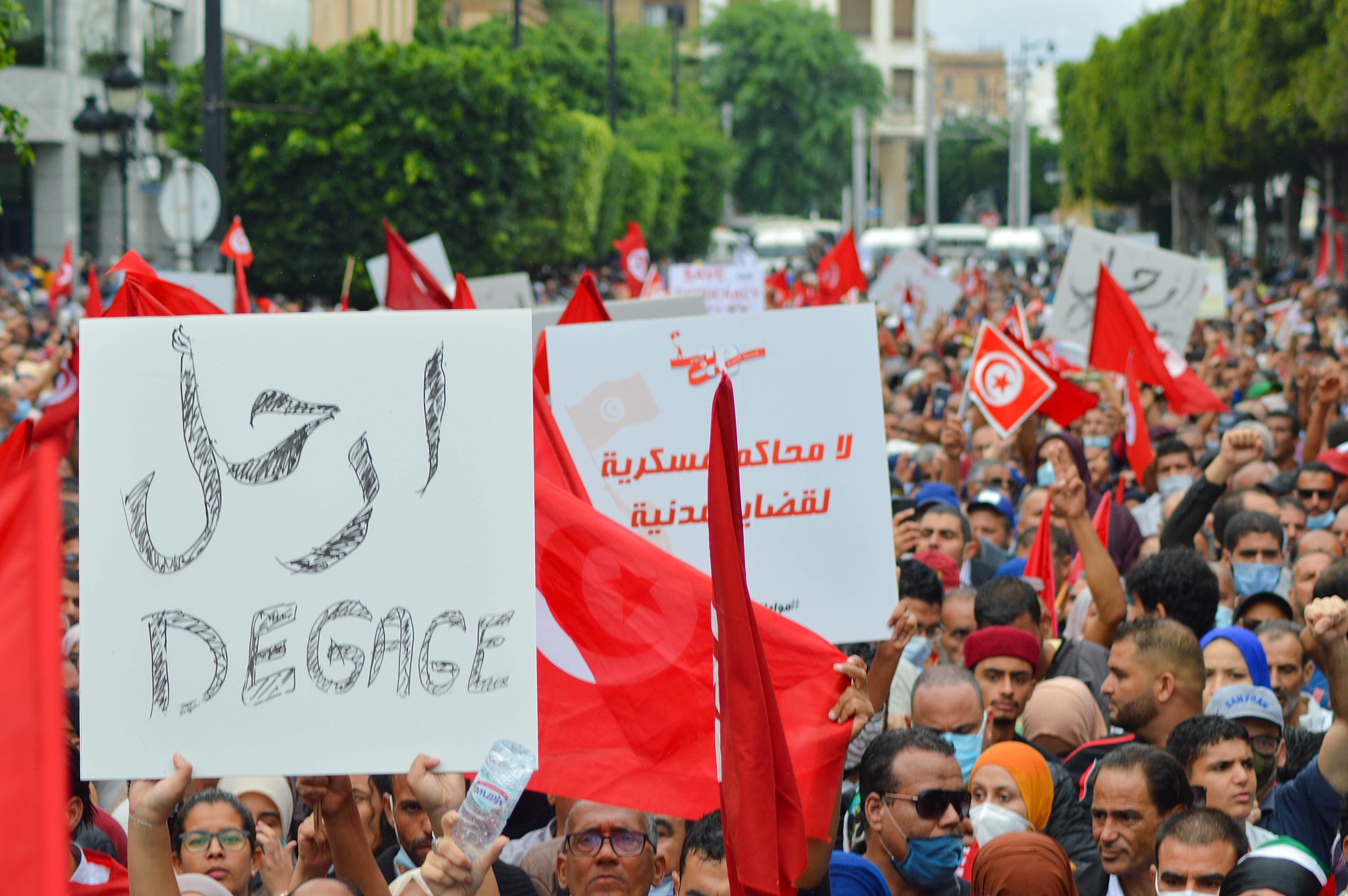Democratic Turmoil: Tunisia’s Stark Reality and Future

Tunisian Anti-Coup Protests in 2021 against President Saied
Jacob Sagers – Tunisian President Kais Saied’s recent crackdown on protests in the country has led to the arrest of prominent union leaders. The UGTT (L’Union Générale Tunisienne du Travail) or Tunisia’s national workers union has spearheaded recent protests towards Saied’s government. His consolidation of power since 2021, silencing of political opponents, and an impending economic crisis, question the country’s democratic success post-Arab Spring and threatens the West’s hopes for the region’s future. The UGTT was crucial in establishing democratic institutions. Attacking the organization poses a grave threat for democracy in the country.
The union’s role in establishing legitimacy for the democratic government allowed for Tunisia to maintain boundaries or dividing lines between countries. Boundaries allow states to exercise authority and governance over the area: maintaining territoriality. The Saied government’s legitimacy is at stake as Tunisian society grapples with political and economic crises. If he loses popular support, the government’s power to maintain sovereignty is reduced. The threat of war and revolution may spur again. Tunisia underwent a relatively peaceful democratic transition a decade ago, there is no reason to think citizens will not protest again for the country to reverse course. Any action, however, requires citizen support and will have broad consequences on people’s lives and state power to govern. With recent growing distrust in democracy expanding worldwide, another transition is also not inherently built to succeed.
The role of non-state actors, or political groups and organizations, have played important roles in Tunisian society. A quartet of groups, including the worker’s union, held elections in 2015 and ensured the formation of a democratic government. Their role is not to be overestimated; if the organizations are silenced, the President will have broad control over Tunisia’s future. However, the government may lose power to enforce territoriality if pushback is too extensive. Given constitutional overhauls, IMF bailouts, and parliament being suspended, democracy’s future looks bleak. Its future course will be altered by current actions and the international community. If the country fails to resolve current crises, it will not only lose power to enforce boundaries. It will also force the West to grapple with the failure of democracy’s only success story from the Arab Spring, migration issues, and ultimately democracy’s future.
Picture Credit: Photo distributed under the Creative Commons Attribution-Share Alike 4.0 International license. Source

